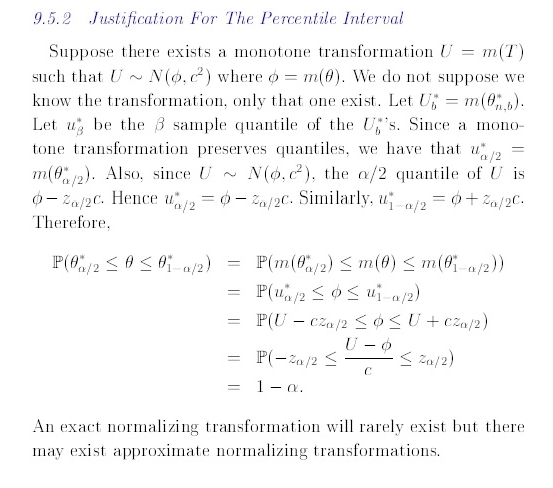The following is a proof of the validity of the (bootstrap) percentile interval taken from Larry Wasserman's "All of Statistics". $\theta^*_{\alpha/2}$ and $\theta^*_{1-\alpha/2}$ denote the respective quantiles of the bootstrap of our estimator $\hat {\theta}$.
Could you please take a look at the proof below and explain to me where the third line of the derivation comes from? How does $U$ enter the derivation? Is there perhaps a mistake there?
Thank you in advance.

